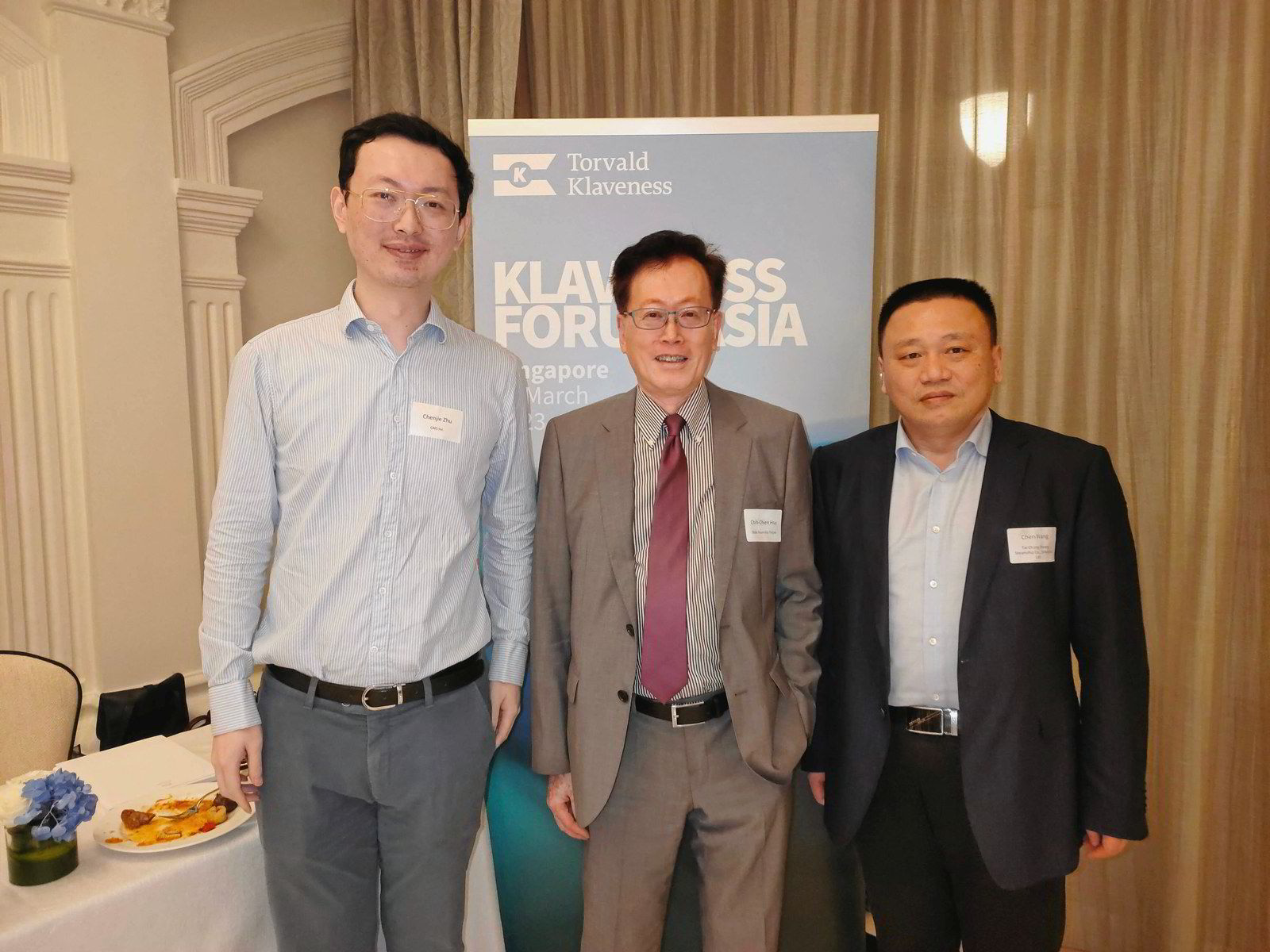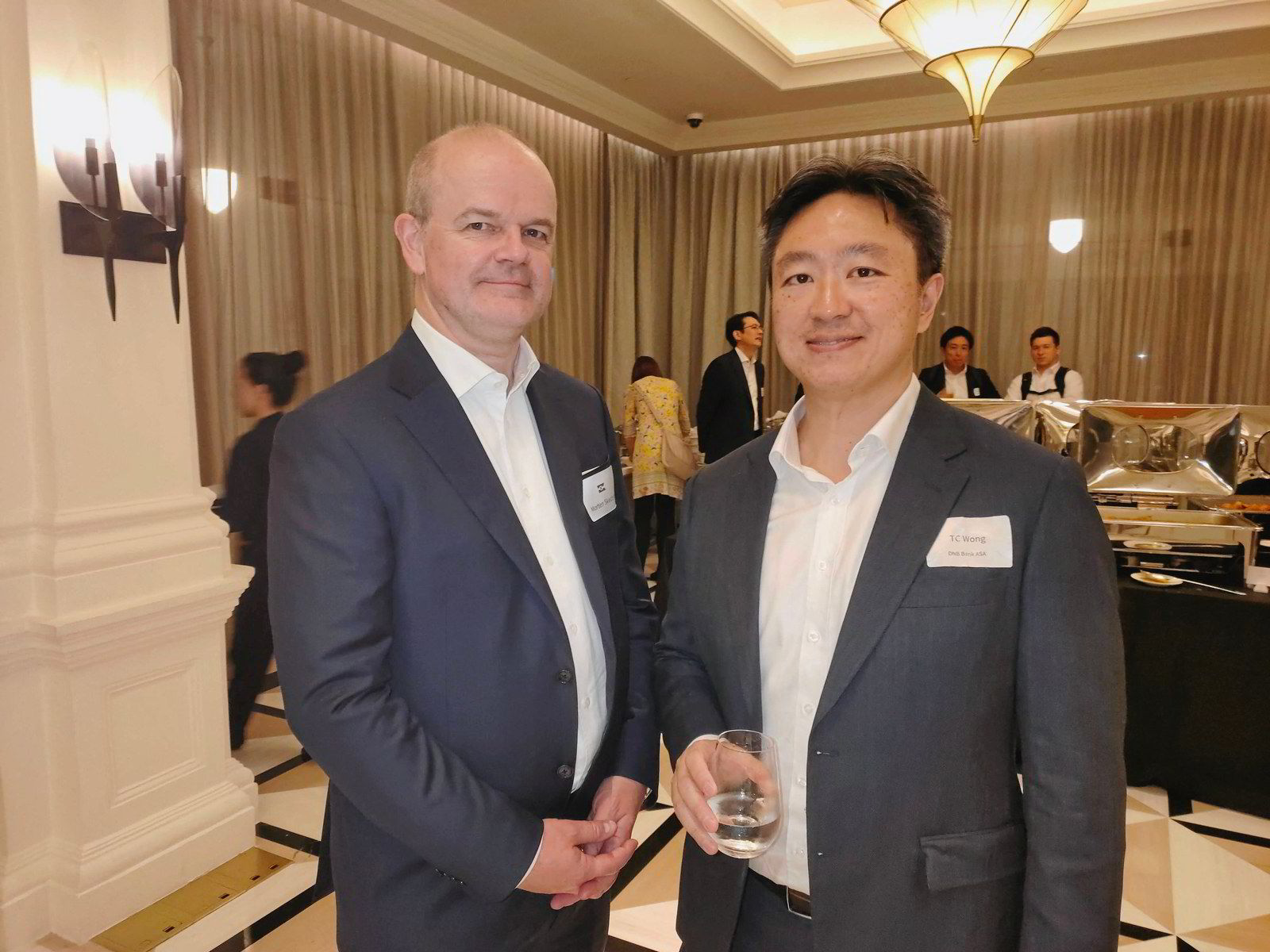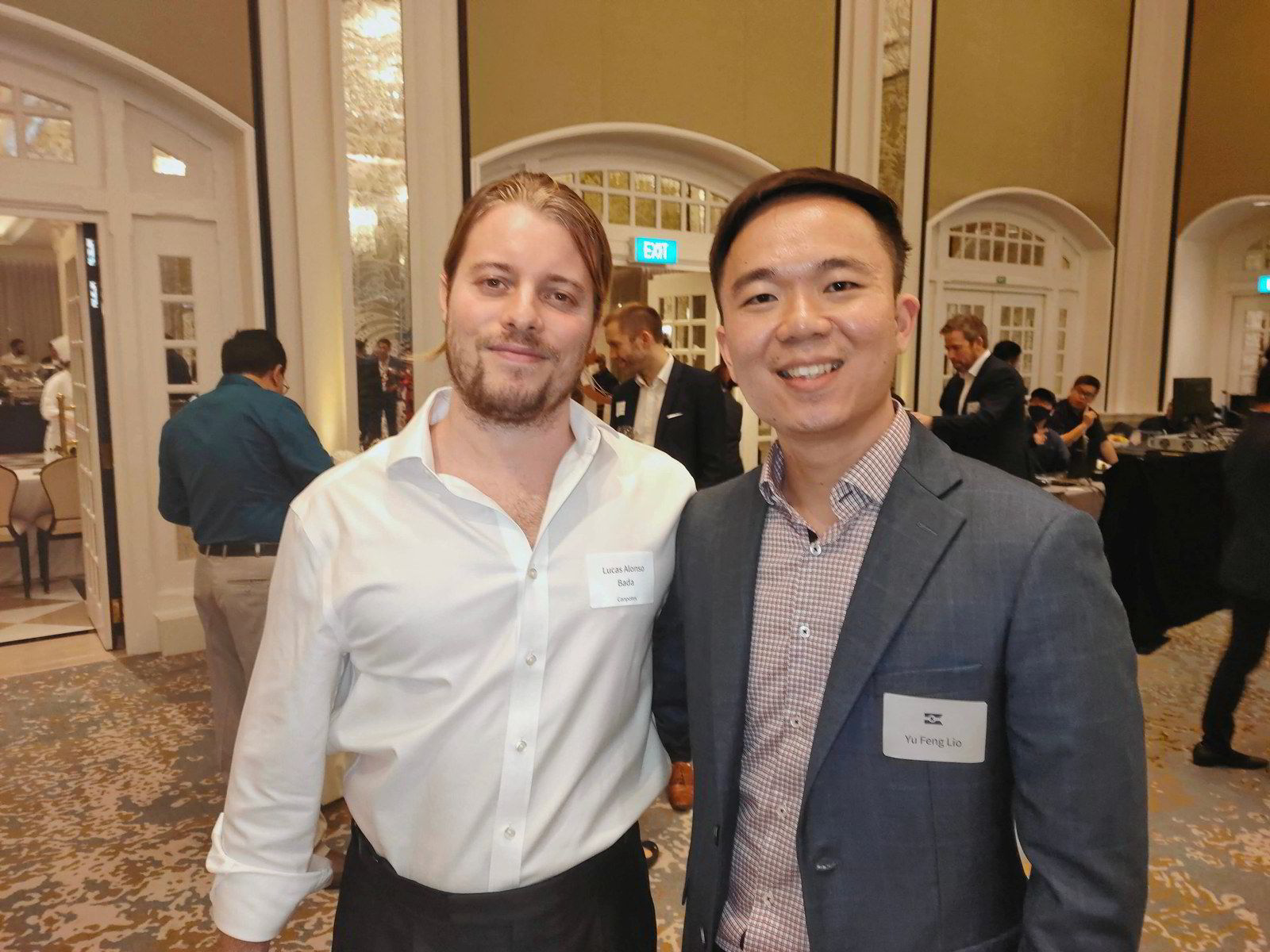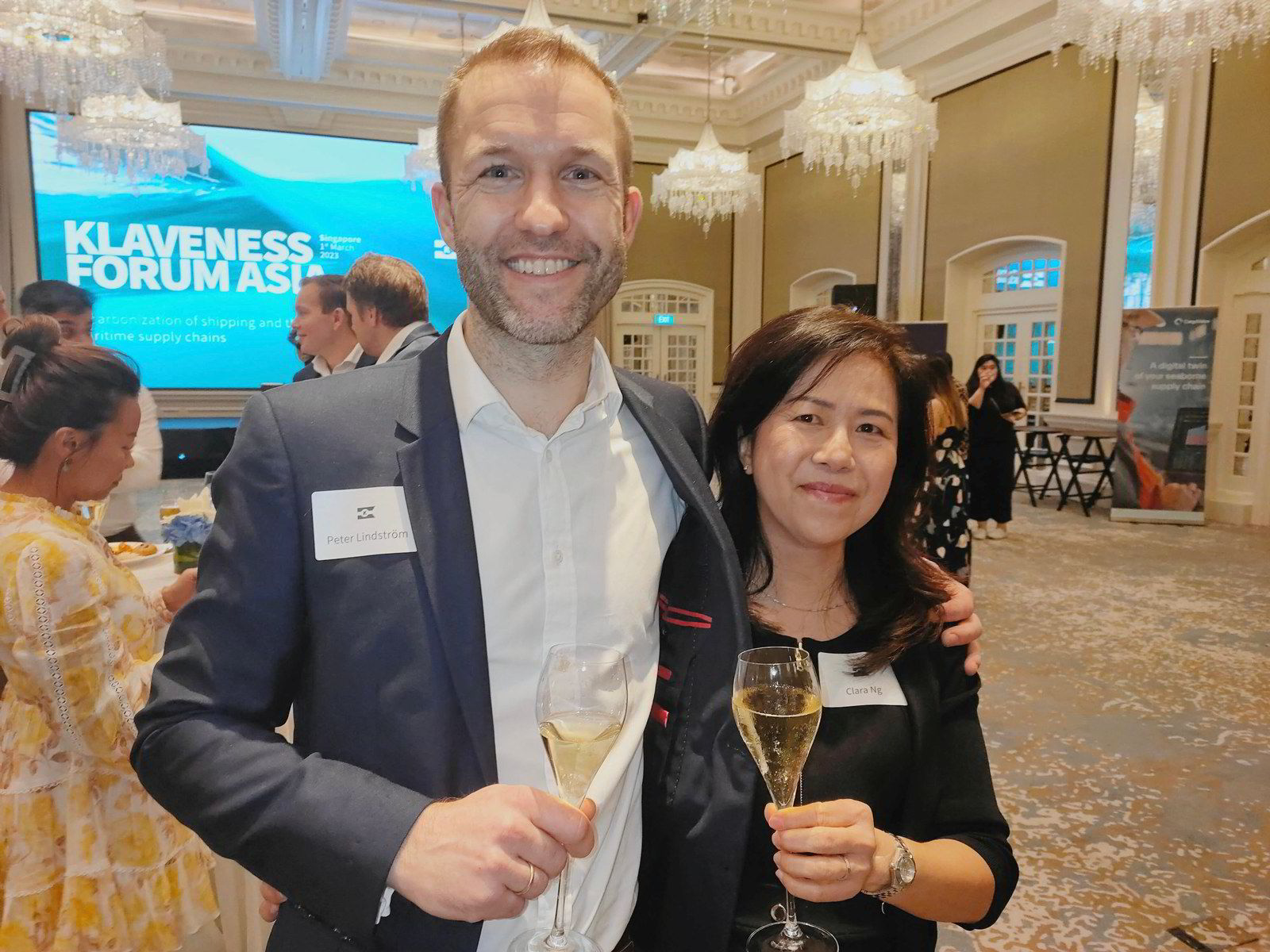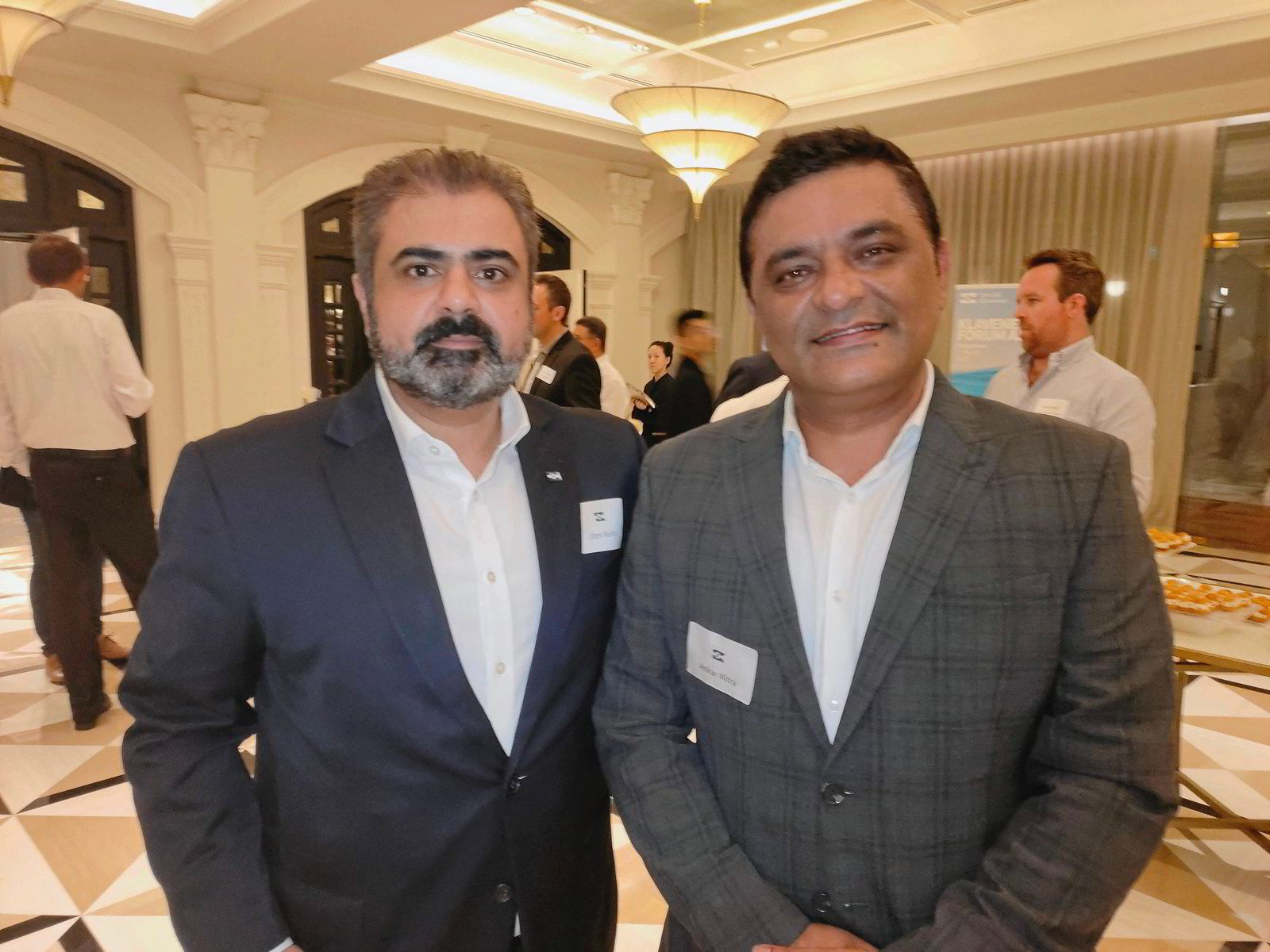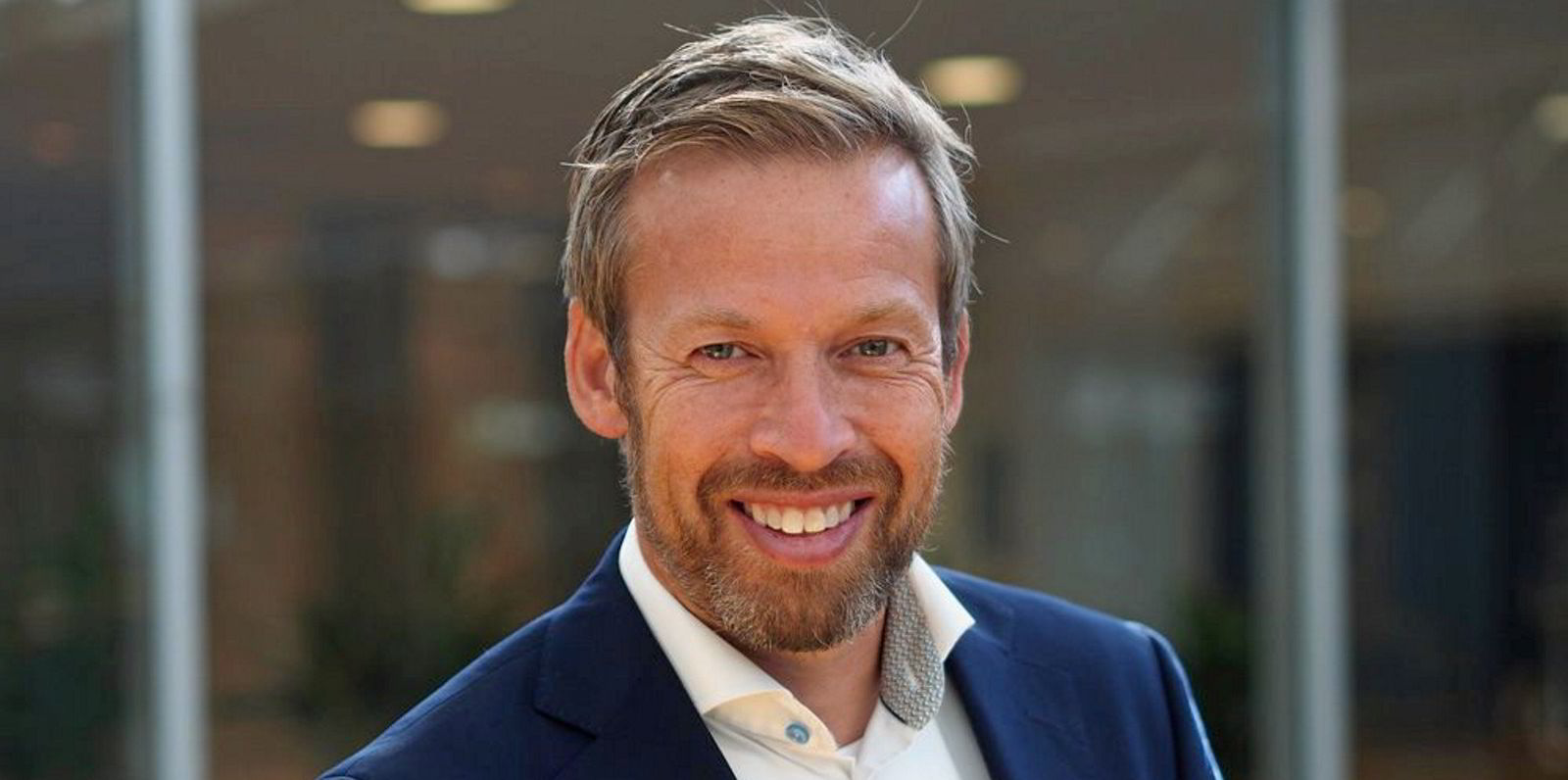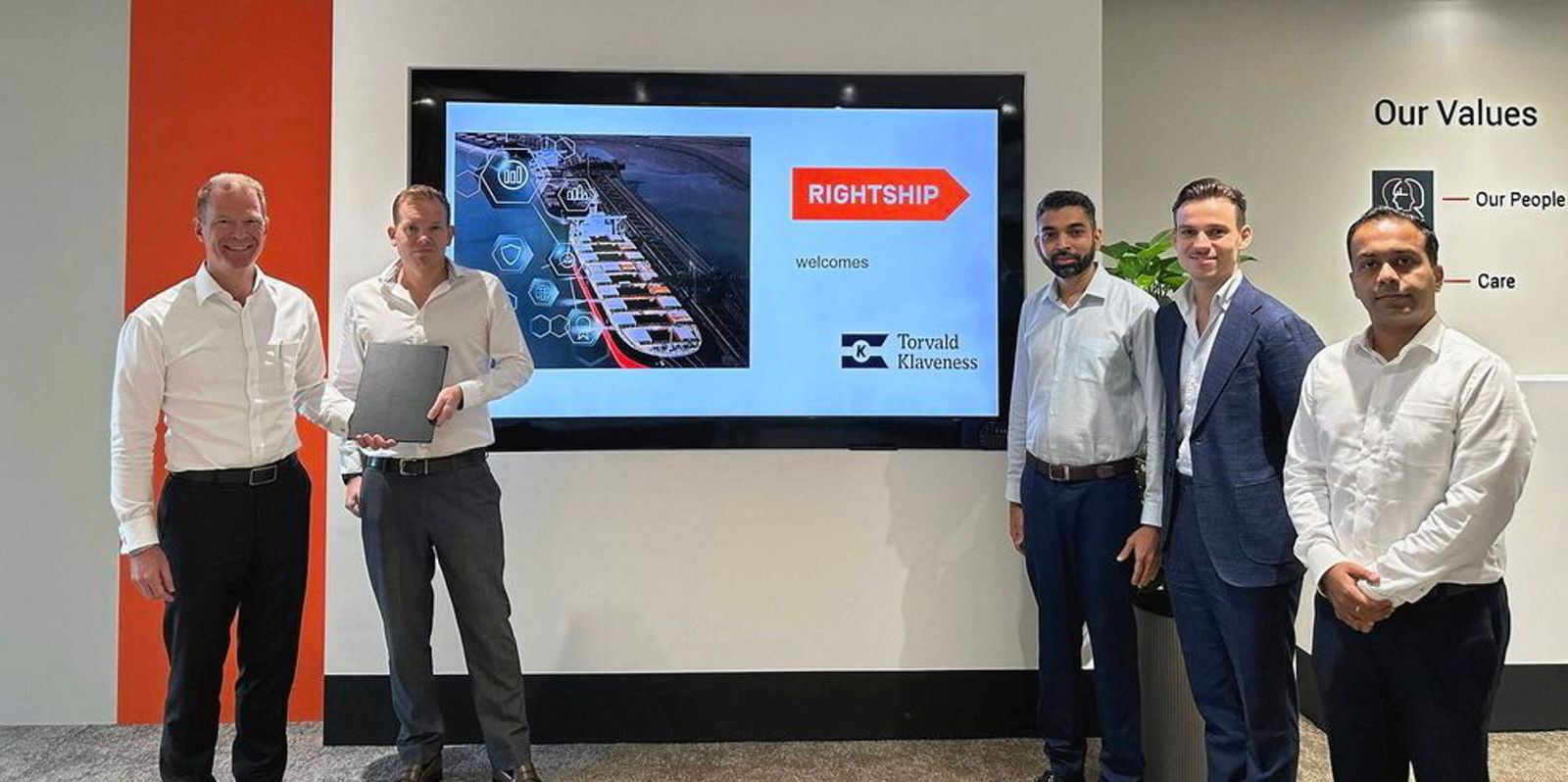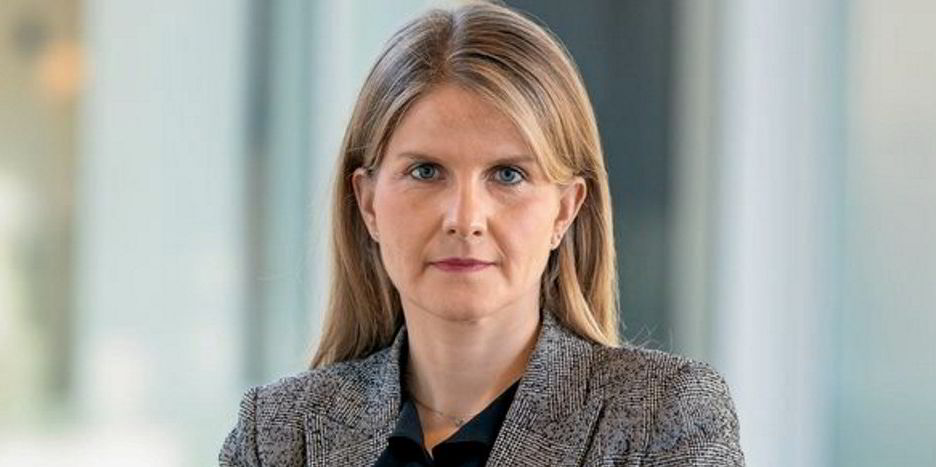Senior management from Torvald Klaveness were in Singapore this week to promote their maritime decarbonisation efforts to customers old and new.
The city-state’s famous Raffles Hotel was the venue for the event that attracted a combination of charterers and shipowners and follows on from a similar event held in London in December.
Among the guests were prominent cargo interests such as Cargill, Vitol and Australian miner South32, while top shipping names included the likes of TCC Group, Global Marketing Systems and Eddie Steamship.
The evening started with an upbeat assessment of the prospects for the dry bulk market by Torvald Klaveness research guru Peter Linstrom.
This was followed by a panel-style debate on the topic of “making seaborne supply chains resilient, decarbonised and cost-effective” debated by several of the shipowner’s business leaders.
“Decarbonisation requirements can appear to threaten the resilience of maritime supply chains,” Torvald Klaveness chief executive Ernst Meyer said.
“Shipowners are hesitant to order new tonnage due to the lack of fuel options that can comply with future requirements, and the record low orderbook for tankers and bulkers is driven by this uncertainty in addition to high prices, the possible lack of future coal and oil volumes to transport and high interest on capital.”
However, Meyer said the pathway to decarbonisation was not limited to the choice of fuels and engine technologies and that energy efficiency offered a “second pathway”.
“The significant reduction of fuel consumption can be achieved through a myriad of technologies and many of them require a high degree of digitalisation to achieve and demonstrate their effect,” he said.
Meyer added that a third way is to make supply chains more effective.
“Every second vessel is trading empty and 30% to 40% of merchant vessels are waiting in ports, many after a high-speed dash to reach laycan,” he said.
“Race to wait is happening to an embarrassing extent when considering the levels of data and information available to all.”
Meyer said making seaborne supply chains more effective is, along with energy efficiency, a “significant contributor to decarbonisation and will lower the threshold to swap to more expensive future fuel solutions”.
